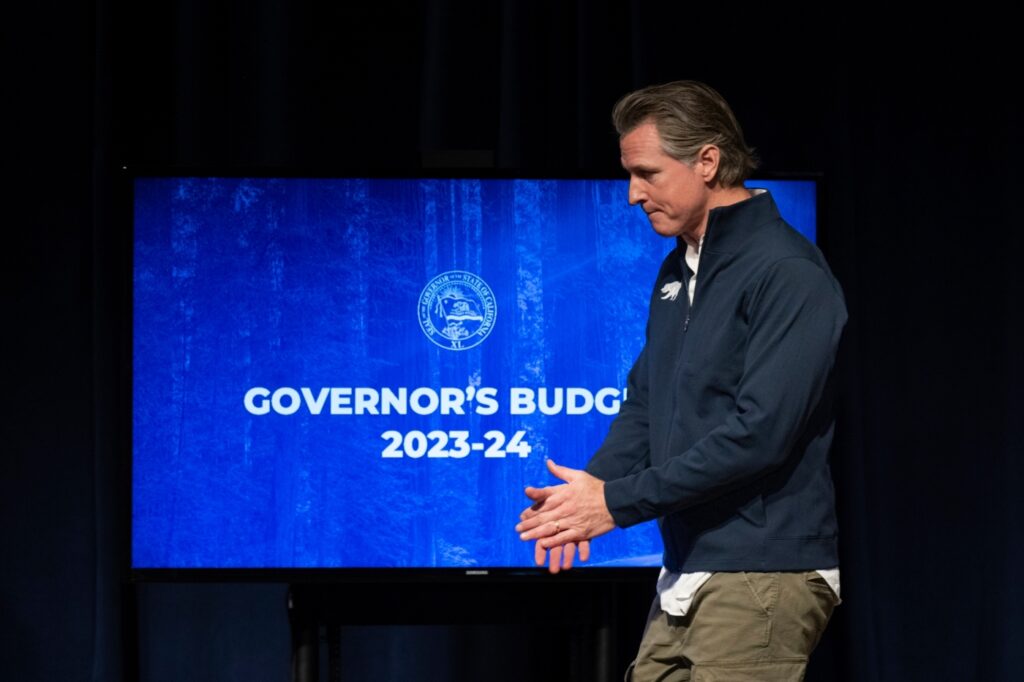
When Gov. Gavin Newsom proposed a 2023-24 budget in January, he acknowledged that the revenue estimates made six months earlier were way too optimistic and that the state had evolved from a nearly $100 billion surplus to a $22.5 billion deficit.
Never mind. Nine months into the current fiscal year, it’s evident that revenue, principally from personal income taxes, will fall well short of that downward revision. The deficit could hit $30 billion as he and legislative leaders begin to focus on a final version for adoption in June.
Through February, the administration reported, revenues were running nearly $5 billion below expectations and they fell short by nearly $1 billion more in March.
The numbers bolster contentions by the Legislature’s budget analyst, Gabe Petek, that the state’s fiscal situation was unhealthier than Newsom was admitting. In his initial response to the January budget, Petek said, “Our estimates suggest that there is a good chance that revenues will be lower than the administration’s projections for the budget window, particularly in 2022-23 and 2023-24.”
The next stop for the annual budget process will come in May, when Newsom must unveil revised revenue estimates and appropriations. The worsening revenue data set the stage for what could be contentious negotiations with a June 15 constitutional deadline for passing a budget.
The essential problem is that when Newsom was forecasting an immense surplus and bragging that “no other state in American history has ever experienced a surplus as large as this,” he and the Legislature spent much of it on rebates to taxpayers and expansions of programs, especially those benefiting the poor.
Although Newsom insisted at the time that much of that spending was one-time in nature and therefore wouldn’t make unsustainable long-term commitments, it nevertheless raised expectations of permanency. Thus, when Newsom offered a new budget in January, he clawed back many of those allocations, particularly those that hadn’t yet been spent, sparking complaints from would-be recipients.
As revenues continue to fall short, expectations will have to shrink further, the competition for money among budget stakeholders will become more intense and the pressure on Newsom and legislators will increase.
They may be tempted to do something that Newsom says he doesn’t want to do and that Petek says would be foolhardy: tap into the state’s “rainy day” reserves to relieve stakeholder pressure.
The reserves are meant to be used during a severe economic downturn, but California’s fiscal problem is occurring during a relatively prosperous post-pandemic recovery. The shortfall in revenues is occurring because of the state’s narrowly based revenue system, one that is largely dependent on earnings of high-income taxpayers, particular in the shaky technology sector.
Related Articles
Jon Coupal: Repeal California’s Prop. 19 death tax
High tax rates are not the mark of a civilized society
How strong a politician is Gavin Newsom, really?
RFK Jr. would make a terrible president
The stranglehold of public sector unions over local government decision-making
The stock market has reacted negatively to the Federal Reserve System’s interest rate increases, which are meant to combat inflation. Declines in the market manifest themselves in lower taxable earnings by investors who are such a large factor in the revenue stream. The system is so narrowly based that lower incomes for just a handful of wealthy Californians can have a big effect on revenues.
Dipping into reserves to cover the revenue shortfall would weaken their ability to cushion a recession if and when that occurs, which is why Petek strongly discourages Newsom and legislators from succumbing to stakeholder pressure by using them.
A deficit north of $30 billion, which is a real possibility, is no joke and coming after such huge – and probably irresponsible surplus estimates – poses a serious political dilemma for politicians who would much prefer to be showering money on their constituents as they did last year.
Dan Walters is a CalMatters columnist.
